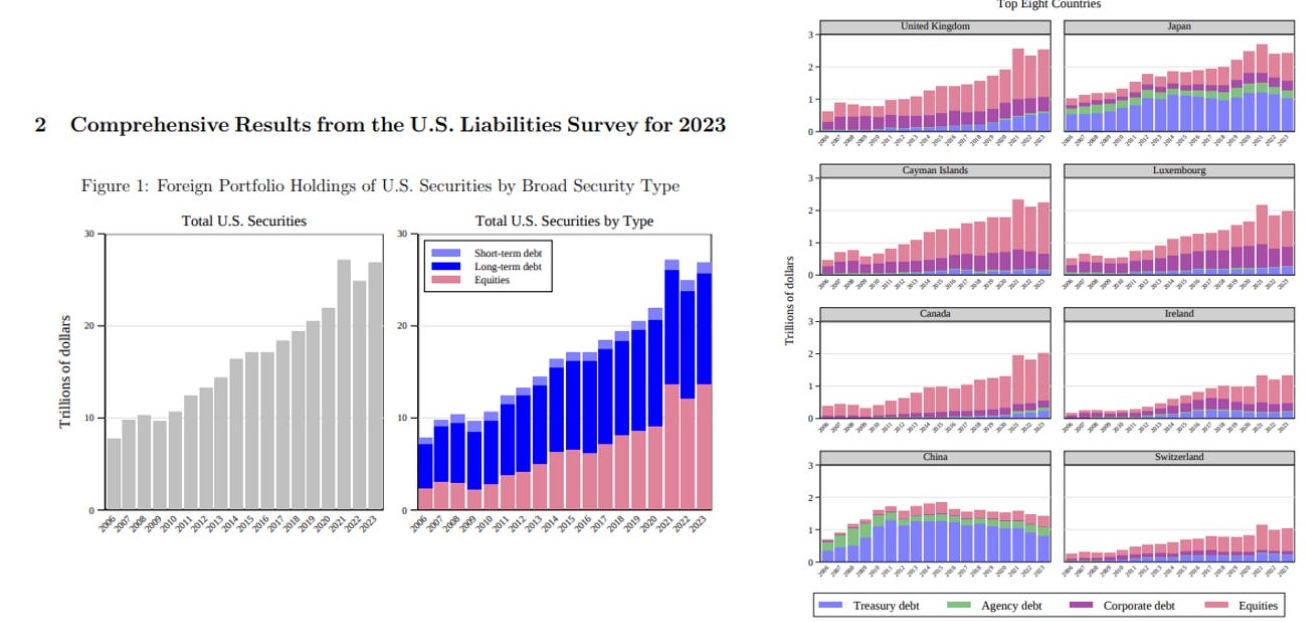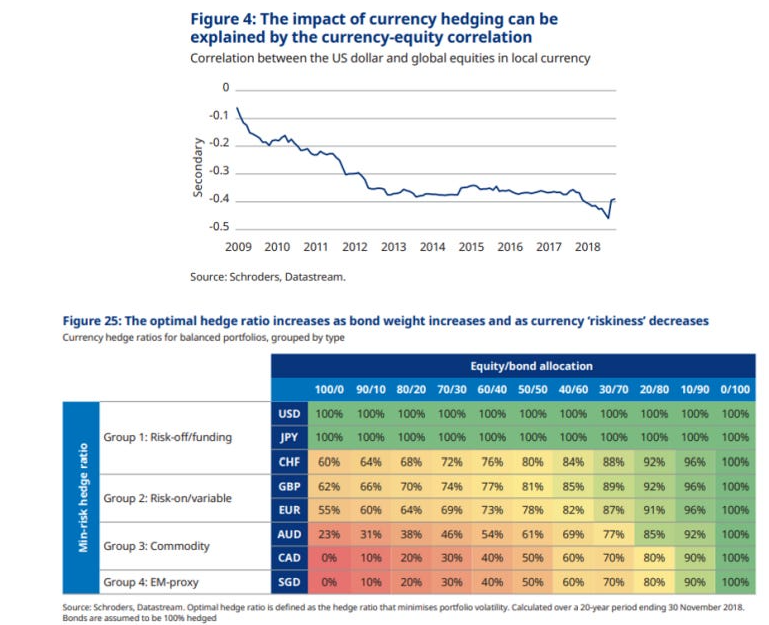SoFi stock falls after announcing $1.5B public offering of common stock
Investors love to attach an ex-post narrative to any price action, and this time the blame was on Trump’s erratic policies, the reduced attractiveness of US assets, and ‘’China dumping’’.
But there is a much bigger catalyst for the USD to sell-off more: FX hedging flows from proper ‘’whales’’.
These whales control $30 trillion (!) in USD-denominated assets, of which 13 trillion is in equities and the remaining portion is in fixed income instruments. You may know these whales by their common names: GPIF, Norges Fund, CPPIB, APG, SuperAnnuation…
Foreign pension funds, insurance companies, and asset managers are the true whales that could dump more US Dollars in an attempt to correct their sizeable and secular ‘’under-hedging’’ of USD risk:
But why are these big whales ’’under-hedged’’ in their USD risk?
Or in other words: why are they implicitly long trillions and trillions of USD, a position which could generate billions of losses if not hedged going forward?
Imagine you are the CPPIB – Canada’s biggest pension fund with $500bn+ in AuM.
You have to generate a consistent return of ~6-7% to be able to service your liabilities (future pensions), which means you’ll invest in a portfolio of stocks, bonds, real estate and alternatives.
Your liabilities are in CAD (as you’ll pay pensions to Canadians) but your assets can’t only be CAD-denominated because to satisfy your investment needs you’ll need to look into the US stock markets, $- denominated hedge funds, Treasuries etc.
But by investing in USD-denominated assets, you are also implicitly getting exposure to USD/CAD risk.
So – how much USD risk should you hedge? Or namely, how much USD/CAD should you sell as a hedge?

The study above from Schroeders details the industry-standard approach: the top chart looks at the correlation between USDxxx (e.g. USD/CAD) and your investment asset class (e.g. equities).
In the 2009-2024 period, the USD has almost always rallied when stocks sold off.
This is because in risk-off situations, the world scrambled towards the safety of US assets backed by sound policymaking, generating the so-called USD smile: the USD rallies during extreme macro conditions, including extreme pressure.
Therefore, for these big whales being ‘’under-hedged’’ was great: if they bought QQQ and didn’t hedge their USD risk, when US stocks took a nosedive the USD rally would save them by limiting their losses.
On top of it, given a currency like CAD (table above) is commodity/risk-on cyclical, during equity sell-offs, having an active ‘’long’’ USD/CAD exposure through under-hedging worked even better – and so the suggested USD/CAD FX hedge ratio for a 60/40 portfolio is 40%.
But what happens when the USD does not rally (!) during risk-off environments, exactly as we are witnessing recently?
1) Stock positions denominated in USD generate a mark-to-market loss
2) The implicit short CAD, long USD position compounds the loss
3) Recently, bonds have also lost their hedging properties against equity drawdowns
If continued, this bad tri-fecta would generate vicious losses for these big market whales.
The whales could be then forced to hedge their long USD position, and hence kickstart a multi-trillion US Dollar firesale.
